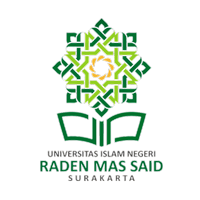Ahlhaus, S. (2022). Plural reconstruction: A method of critical theory for the analysis of emerging and contested political practices. Philosophy & Social Criticism, 48(5), 703–725.
Almujaddidy, A. I. (2021). „Progressive Muslim Environmentalism: The Eco-Theology and Ethics of the Nahdliyyin Front For Sovereignty over Natural Resources (FNKSDA).“. Varieties of Religion and Ecology: Dispatches from Indonesia, 9–32.
Aoki, T. (2015). Islamic NGOs on environmental problems in Indonesia. In NGOs in the Muslim world (hal. 69–86). Routledge.
Asworo, L., & Al Akbar, N. (2019). FNKSDA SEBAGAI WUJUD GERAKAN ISLAM NUSANTARA “HIJAU’. Aqlam: Journal of Islam and Plurality, 4(1).
Aubert, I. (2021). Social inclusion, a challenge for deliberative democracy? Some reflections on Habermas’s political theory. European Journal of Social Theory, 24(4), 448–466.
Blau, A. (2022). Habermas on rationality: Means, ends and communication. European Journal of Political Theory, 21(2), 321–344.
Carson, R. (2002). Silent Spring (Anniversary). Mariner Books.
Daheri, M., Warsah, I., Morganna, R., Putri, O. A., & Adelia, P. (2023). Strengthening Religious Moderation: Learning from the Harmony of Multireligious People in Indonesia. Journal of Population & Social Studies, 31.
Efendi, D., Kurniawan, N. I., & Santoso, P. (2021). From fiqh to political advocacy: Muhammadiyah’s ecological movement in the post new order indonesia. Studia Islamika, 28(2), 349–383.
Fannani, B., Ma’arif, A. S., & Arifuddin, N. (2024). Konstruksi teologis pelestarian daerah aliran sungai brantas dalam perspektif aktivis fnksda dan Kader Hijau Muhamamdiyah sebagai penguatan green constitution (sertifikat hak cipta).
Fata, A. K. (2014). Teologi lingkungan hidup dalam perspektif Islam. Ulul Albab: Jurnal Studi Islam, 15(2), 131–147.
Feteris, E. T., & Feteris, E. T. (2017). Habermas’s discourse theory and the rationality of legal discourse. Fundamentals of Legal Argumentation: A Survey of Theories on the Justification of Judicial Decisions, 77–93.
Ghufron, M. (2010). Fikih lingkungan. Al-Ulum, 10(1), 159–176.
Habermas, J. (1984). The theory of communicative action, volume I. Boston: Beacon, 57.
Habermas, J. (1991). The structural transformation of the public sphere: An inquiry into a category of bourgeois society. MIT press.
Halton, E. (2011). Pragmatic E-Pistols. European Journal of Pragmatism and American Philosophy, 3(III–2).
Hardin, G. (2013). The tragedy of the commons. In Environmental ethics (hal. 185–196). Routledge.
Kodir, A., & Mushoffa, I. (2017). Islam, Agrarian Struggle, and Natural Resources: The Exertion of Front Nahdliyin for Sovereignty of Natural Resources Struggle Towards Socio-Ecological Crisis in Indonesia. KARSA: Journal of Social and Islamic Culture, 25(1), 57–89.
Kurniawan, N. I. (2012). Wacana lingkungan dan pembangunan berkelanjutan dalam lembaga swadaya masyarakat di Indonesia. Jurnal Ilmu Sosial dan Ilmu Politik, 16(1), 1–15.
Miles, M. B., & Huberman, A. M. (1984). Drawing valid meaning from qualitative data: Toward a shared craft. Educational researcher, 13(5), 20–30.
Muda, Y. A. (2020). Ecotheology Menurut Seyyed Hossein Nasr dan Sallie Mcfague. Jurnal Teologi (Journal of Theology), 9(1), 69–84.
Murtadho, A. (n.d.). GERAKAN LINGKUNGAN KAUM MUDA NU.
Nashirulhaq, M. (2017). Perjuangan ekonomi-politik generasi muda Nahdlatul Ulama (NU): Studi atas Front Nahdliyyin untuk Kedaulatan Sumber Daya Alam (FNKSDA). Jakarta: Fakultas Ilmu Sosial dan Ilmu Politik UIN Syarif Hidayatullah.
Nasr, S. H. (1968). Man and nature: The spiritual crisis of modern man.
Nasr, S. H. (1996). Religion and the Order of Nature (Nomor 167). Oxford University Press, USA.
Quddus, A., Nugroho, B. S., Hakim, L., Ritaudin, M. S., Nurhasanah, E., Suarsa, A., Karyanto, U. B., Tanjung, R., Hendar, H., & Pratama, V. Y. (2020). Effect of ecological, servant dan digital leadership style influence university performance? evidence from indonesian universities. Systematic Reviews in Pharmacy, 11(10), 408–417.
Rozuli, A. I., Yasin, M., Kholish, M. A., & Ambo’Dalle, A. R. (2022). Kyai NU’s Patrons as an Agent of Social Change and Environmental Marine Conservation: a Case Study in Paciran Lamongan. Addin, 16(1), 103–130.
Setiawan, D. (2022). Peran agama dalam aktivitas pelestarian alam: Studi deskriptif pada Front Nahdliyyin untuk Kedaulatan Sumber Daya Alam (FNKSDA). Jurnal Penelitian Ilmu Ushuluddin, 2(1), 1–18.
Ubaidillah, M. (2018). Wajah Baru Kiri Islam: Studi Gerakan Front Nahdliyin Untuk Kedaulatan Sumber Daya Alam (FNKSDA). Kontemplasi: Jurnal Ilmu-Ilmu Ushuluddin, 6(2), 251–270.
Ventimilla, A. (2023). It’s About Us: Extinction, Contradiction, and the Mourning of Modernity in David Attenborough: A Life on Our Planet. Animal Studies Journal, 12(2).
White Jr, L. (1967). The historical roots of our ecologic crisis. Science, 155(3767), 1203–1207.
Widayati, A. (2019). Reaktualisasi Perjuangan Nahdlatul Ulama dalam Mewujudkan Kedaulatan Sumber Daya Agraria (Studi Gerakan Demokrasi Radikal pada FNKSDA). BHUMI: Jurnal Agraria dan Pertanahan, 5(1), 84–98.
Yazdi, M. (2023). Comparison of environmental ideas of Ayatollah Khamenei supreme leader of Iran and Ayatollah Javadi Amoli. Journals of Environmental Education and Sustainable Development, 11(3), 175–186.

